- Home
- Robin Cook
Shock Page 3
Shock Read online
Page 3
“This is a total switch.”
“Exactly,” Joanna said. “Here he is trying to move the date up and I’d be arguing to postpone. I need some time and space.”
“I understand completely,” Deborah said. “And you know what? I think you’re being smart not to let this situation turn into a petulant debate.”
“The problem is I do love him,” Joanna said with a wry smile. “If there was any debate, I might lose.”
Deborah laughed. “I agree. You’re such a new convert to a more modern, sensible attitude about marriage, that you’re vulnerable to a relapse. You definitely need time and space. And you know what? I think I have the answer.”
“The answer to what?” Joanna asked.
“Let me show you something,” Deborah said. She climbed to her feet and picked up the latest issue of the Harvard Crimson lying on her desk. It was folded lengthwise in the classified section. She handed the paper to Joanna.
Joanna scanned the page and read the circled ad. She looked up at Deborah questioningly. “Is this ad from the Wingate Clinic what you wanted me to see?”
“It is indeed,” Deborah said enthusiastically.
“This is an advertisement for egg donors,” Joanna said.
“Precisely,” Deborah said.
“How is this the answer?” Joanna asked.
Deborah came around the coffee table and sat down next to Joanna. With her index finger she pointed to the offered compensation. “The money is the answer,” she said. “Forty-five thousand dollars a pop!”
“This ad was in an issue of the Crimson last spring and caused a buzz,” Joanna said. “Then it never reappeared. Do you think it’s legit or some kind of college prank?”
“I think it’s legit,” Deborah said. “Wingate is an infertility clinic in Bookford, Massachusetts, out beyond Concord. That’s what I learned form their website.”
“Why are they willing to pay so much money?” Joanna asked.
“The website says they have some wealthy clients who are willing to pay for what they consider the best. Apparently these clients want Harvard coeds. It must be something like that sperm bank in California where the donors are all Nobel laureates. It’s lunacy from a genetic point of view, but who are we to question?”
“We’re certainly not Nobel laureates,” Joanna said. “Technically, we’re not even Harvard coeds. What makes you think they’d be interested in you and me?”
“Why wouldn’t they be?” Deborah asked. “I think being grad students qualifies us as Harvard coeds. I can’t imagine it’s just undergraduates that they’re looking for. In fact, the website specifies they’re interested in women twenty-five and younger. We just make it under the wire.”
“But it also says we have to be emotionally stable, attractive, not overweight, and athletic. Aren’t we stretching reality a bit here?”
“Hey, I think we’re perfect.”
“Athletic?” Joanna questioned with a smile. “Maybe you, but not me. And emotionally stable. That’s pushing the envelope, especially in my current state.”
“Well, we can give it a go,” Deborah said. “Maybe you’re not the most athletically inclined female on campus, but we’ll tell them we’ll only consider donating as a pair. They have to take both of us. All or nothing. And our SAT scores are appropriate.”
“Are you truly serious about this?” Joanna asked. She eyed her roommate, who could be a tease on occasion.
“I wasn’t at first,” Deborah admitted. “But then I got to thinking about it earlier in the evening. I mean, the money is enticing. Can you imagine: forty-five grand apiece! That kind of money could give us some freedom for the first time in our lives even while we write our theses. And now that you have so recently opted out of the economic security of the marital goal, the idea should be even more seductive from your perspective. You need some equity besides your education to maintain your resolve and, frankly, to begin planning for the life of a single individual. This kind of money could be the start.”
Joanna tossed the school newspaper onto the coffee table. “Sometimes I can’t tell when you are pulling my leg.”
“Hey, I’m not joking. You said you need time and space. This kind of money could provide it and more. Here’s the deal: We both go out to this Wingate Clinic, give them a couple of eggs, and collect ninety K. Of that, we take about fifty K and buy a two-bedroom condo in Boston or Cambridge, which we rent out to pay the mortgage.”
“Why would we buy a condo to rent it?” Joanna asked.
“Let me finish,” Deborah said.
“But wouldn’t it be better to just wisely invest the fifty K? Remember: I’m the economist and you’re the biologist.”
“You might be getting a Ph.D. in economics, but you’re a babe in the woods in relation to being a single female in the twenty-first century. So shut up and listen. We buy the condo to begin establishing some real roots. In the previous generation females looked to marriage for that, but now we have to do it for ourselves. An apartment would be a nice start as well as a good investment.”
“My word!” Joanna exclaimed. “You’re way ahead of me.”
“You bet your sweet ass,” Deborah said. “And there’s more. Here’s the best part: We take the other forty K and go to Venice to write our Ph.D. theses.”
“Venice!” Joanna cried. “You’re crazy, girl!”
“Oh yeah?” Deborah asked. “Think about it. When you’re talking about having some time and space, what could be better? We’d be in Venice in some nice cozy apartment and Carlton’s here doing his residency. We get our theses done and live a little at the same time without the good doctor breathing down your neck.”
Joanna stared ahead with unseeing eyes while her brain conjured up images of Venice. She’d visited the magical city once, but only for a few days, and that had been with her parents and siblings when she’d been in high school. She could picture the sparkle of the water of the Grand Canal as it reflected off the gothic facades. With equally startling clarity she could remember the bustle of St. Mark’s Square with the competing quartets from the two famous opposing coffeehouses. She’d told herself back then that she would return someday to that most romantic city. Of course that fantasy had included Carlton, who was not along at the time, but whom she was already seeing.
“And there’s something else,” Deborah said, interrupting Joanna’s brief reverie. “Giving a few eggs, which by the way we have several hundred thousand of so they won’t be missed, will provide a tiny bit of satisfaction to our procreative urges.”
“Now I know you are teasing me,” Joanna said.
“I’m not!” Deborah insisted. “Donating some eggs will mean that a few couples who couldn’t have children will have them, and these kids will have half our genes. There’ll be a few ‘half Joannas’ and ‘half Deborahs’ wandering around.”
“I guess that’s true,” Joanna said. In her mind’s eye she saw a little girl who looked something like herself. It was a pleasant image until she saw the little girl was with two total strangers.
“Of course it’s true,” Deborah said. “And the good part is that we don’t have to change any diapers or lose any sleep. What do you say we give it a whirl?”
“Wait a minute!” Joanna said. She raised her hands as if to protect herself. “Slow down! Assuming we got accepted, which is hardly a sure thing given all the stipulations in the ad, I’ve got a few major questions.”
“Like what?”
“Like how do we actually give the eggs? I mean, what’s the procedure? You know that I’m not fond of doctors and hospitals.”
“That’s a fine thing for someone to say who’s been dating a doctor-in-training for the last half century.”
“It’s when I’m a patient that the trouble starts,” Joanna said.
“The ad says there’d be minimal stimulation,” Deborah said.
“Is that good?”
“Absolutely,” Deborah said. “Usually they have to hyperstimulate the ova
ries to get them to release a number of eggs, and the hyperstimulation can cause problems in some people like PMS from hell. The hyperstimulation is done with strong hormones. Believe it or not, some of the hormones come from menopausal Italian nuns.”
“Oh, come on!” Joanna complained. “I’m not that gullible.”
“I swear to God,” Deborah said. “These menopausal nuns’ pituitaries are cranking out gonadal stimulating hormones to beat the band. It’s extracted from their urine. Trust me!”
“I’ll take your word for it,” Joanna said, making an expression of disgust. “But getting back to the issue at hand: Why do you think the Wingate people are not hyperstimulating?”
“I suppose they’re aiming for quality, not quantity,” Deborah said. “But I’m only guessing. It’s a reasonable question to ask them.”
“How do they actually get the eggs?”
“I’m only guessing again, but I believe it would be by needle aspiration. I imagine they’d use ultrasound for a guide.”
“Ugh!” Joanna voiced with a shudder. “I definitely don’t like needles, and we’d have to be talking about a mighty long needle. Where would they stick it?”
“I imagine vaginally,” Deborah said.
Joanna visibly shuddered again.
“Oh, come on!” Deborah said. “I suppose it wouldn’t be a walk in the park, but it can’t be all that bad. Lots of women do it as part of in vitro fertilization, and remember we’re talking about forty-five thousand dollars. That’s worth a bit of discomfort.”
“Would we be put to sleep?”
“I have no idea,” Deborah said. “That’s another question we could ask.”
“I can’t believe you’re serious about this.”
“But it’s a win-win situation. We’d get some serious money and a few couples would get children. It’s like we’d be paid to be altruistic.”
“I wish we could talk to somebody who’s gone through it,” Joanna said.
“Hey, we might be able to do that,” Deborah said. “The egg donation issue came up in a biology 101 lab group discussion I was an instructor for last semester. It was back when the Wingate Clinic had their first ad in the Crimson. One of the freshmen said she’d been interviewed, accepted, and was going to do it.”
“What was her name?”
“I can’t remember, but I know how to find it. She and her roommate were in the same lab section, and both were terrific students. It would be in my grade book for the course. Let me get it.”
While Deborah disappeared into her bedroom, Joanna tried to digest what had transpired in her life in the previous thirty minutes. She felt shell-shocked and a bit giddy. Events seemed to be transpiring at warp speed.
“Voila!” Deborah called out from the bedroom. A second later, she appeared at the door with a soft-cover grade book open in her hand and made a beeline for the desk. “Where’s the campus phone directory?”
“Second drawer on the right,” Joanna said. “What’s the name?”
“Kristin Overmeyer,” Deborah said. “And her roommate was Jessica Detrick. They were lab partners, and I gave them the highest grades in the class.” She got the phone book out and flipped to the appropriate page. “That’s weird! She’s not in here. How can that be?”
“Maybe she dropped out of school,” Joanna suggested.
“I can’t imagine,” Deborah said. “Like I said, she was a dynamite student.”
“Maybe the egg-donation ordeal was too much.”
“You’re joking.”
“Of course I’m joking,” Joanna said. “But it is curious.”
“Now I have to get to the bottom of this or you’ll use it as an excuse,” Deborah said. She rapidly flipped through the phone book, found a number and dialed.
“Who are you calling?”
“Jessica Detrick,” Deborah said. “Maybe she can tell us how to get in touch with Kristin, provided the former roommate’s in her room studying on a Friday night.”
Joanna listened after Deborah gave her the thumbs-up sign indicating that Jessica had answered. Joanna’s interest peaked when Deborah’s expression clouded over, and she started saying things like: “Oh, that’s terrible,” and “I’m sorry to hear that,” and “What a tragedy!”
After concluding a rather long conversation, Deborah replaced the receiver slowly, then turned to look at Joanna. Deep in thought, she absently chewed the inside of her cheek.
“Well?” Joanna demanded. “Aren’t you going to clue me in? What’s the tragedy?”
“Kristin Overmeyer disappeared,” Deborah said. “She and another freshman by the name of Rebecca Corey were last seen by a Wingate Clinic employee picking up an apparent hitchhiker just after leaving the clinic.”
“I heard about two students disappearing last spring,” Joanna said. “I never knew the names.”
“What in God’s name made them pick up a hitchhiker?”
“Maybe they knew him?”
“It’s possible,” Deborah said. Now it was her turn to shudder. “Stories like that give me the creeps.”
“The women were never found? What about their bodies?”
“Just the car, which belonged to Rebecca Corey. It was found at a truck stop along the New Jersey turnpike. The women were never seen again. Nor any of their possessions like purses or clothing.”
“Did Kristin donate eggs?”
“A half dozen, which her family sued to get possession of, but which the clinic turned over voluntarily. Apparently the family wanted to have some say in who got them. Such a sad story!”
“So much for having someone to ask about the donation procedure,” Joanna said.
“We could always call the clinic and ask for the name of a previous donor,” Deborah said.
“If we call the clinic we could ask our questions to them directly,” Joanna said. “If that goes well, then maybe we could ask for a referral.”
“Then you’re willing to give it a try?”
“I suppose there’s no harm in getting more information,” Joanna said. “But I’m certainly not committing myself, except for possibly a visit to the clinic.”
“All right!” Deborah exclaimed. She stepped over to Joanna and high-fived her. “Venice, here we come!”
OCTOBER 15, 1999
7:05 A.M.
IT WAS A BEAUTIFUL FALL DAY
with a riot of bright foliage stretching away from both sides of Route 2 as Deborah and Joanna sped northwest out of Cambridge toward Bookford, Massachusetts. The sun was conveniently behind them, although there were occasional flashes of glare reflecting off the windshields of the mass of commuter cars heading in the opposite direction into Boston. Both women were wearing sunglasses and baseball caps.
There had been no conversation since they had rounded Fresh Pond. Each was engrossed in her own thoughts. Deborah was mainly marveling at how quickly everything had fallen into place as if the whole affair involving the Wingate Clinic had been preordained. Joanna’s musings were more inwardly focused. She couldn’t believe how much her life had changed in a week and yet how much at peace she felt. On Sunday, when she’d finally deemed herself emotionally capable of talking with Carlton and handling what she expected would be his insistence on getting married in June, he was in such a snit that he’d refused to talk with her. She’d called and left messages for several days without result. Consequently they’d not talked for the entire week, a fact which made Joanna more convinced her sudden epiphany concerning her attitude toward marriage in general, and to Carlton in particular, had been appropriate. After all the episodes she’d had to endure of what she had interpreted as rejection, it seemed inappropriate that Carlton would act negatively in this instance. As far as she was concerned, it was not a good sign. Communication had a high priority in Joanna’s value system.
“Did you remember to bring that list of questions you wrote down?” Deborah said.
“I sure did,” Joanna answered. They were mostly questions about what to expect after the eg
g-retrieval procedure and whether there would be any limitations concerning exercise, etcetera.
Deborah had been impressed at how responsive the Wingate Clinic proved to be. She and Joanna had called the number listed in the ad in the Harvard Crimson on Monday morning, and when they described themselves and their possible interest in donating eggs, they were connected with a Dr. Sheila Donaldson, who offered to visit them straight away. Less than an hour later the doctor had arrived at their Craigie Arms apartment and had impressed them with her professionalism. In short order she’d laid out the entire program and had effectively answered all the questions Deborah and Joanna had had up to that point.
“We don’t feel we have to hyperstimulate,” Dr. Donaldson had said early in the discussion. “In fact we don’t stimulate at all. We call it our ‘organic’ approach. The last thing we want is to cause any problems with our donors, which synthetic or pooled hormones can do.”
“But how can you be sure you’ll get any eggs at all?” Deborah had asked.
“Occasionally we don’t,” Dr. Donaldson had said.
“But you’d still pay, wouldn’t you?”
“Absolutely,” Dr. Donaldson had said.
“What kind of anesthesia is used?” Joanna had asked. It was her major concern.
“That will be your choice,” Dr. Donaldson had said. “But Dr. Paul Saunders, the individual who does the retrievals, prefers light general anesthesia.”
At that point Joanna had given Deborah a thumbs-up.
The day following the interview Dr. Donaldson had called first thing in the morning to say that both women had been accepted and that the clinic would like to do the procedures as soon as possible, preferably that week, and in any case, they’d like to hear back from the women that very day. For the next several hours, the women debated the pros and cons. Deborah was heavily in favor of going ahead with it. Eventually her enthusiasm won Joanna over. A call back to the clinic resulted in an appointment for that Friday morning.
“Do you have any second thoughts about this?” Joanna asked suddenly, breaking a quarter-hour silence.

 Shock
Shock Mutation
Mutation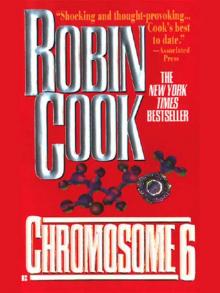 Chromosome 6
Chromosome 6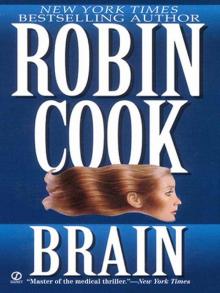 Brain
Brain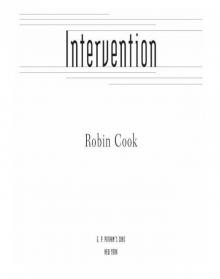 Intervention
Intervention Invasion
Invasion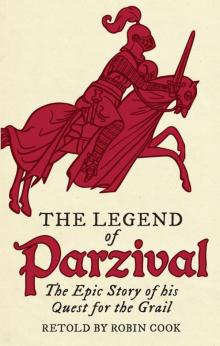 The Legend of Parzival: The Epic Story of His Quest for the Grail
The Legend of Parzival: The Epic Story of His Quest for the Grail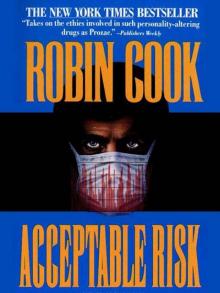 Acceptable Risk
Acceptable Risk Cell
Cell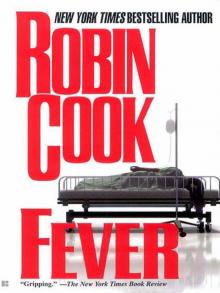 Fever
Fever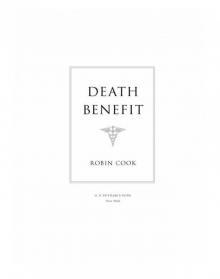 Death Benefit
Death Benefit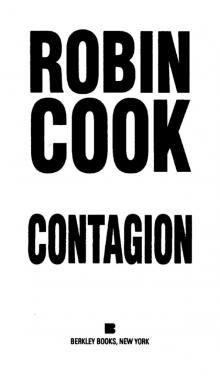 Contagion
Contagion Mindbend
Mindbend Coma
Coma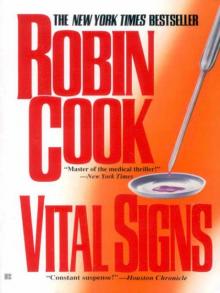 Vital Signs
Vital Signs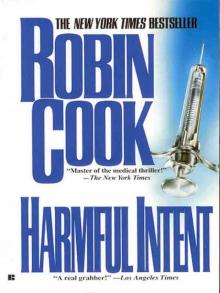 Harmful Intent
Harmful Intent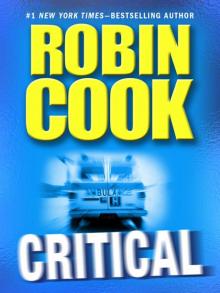 Critical
Critical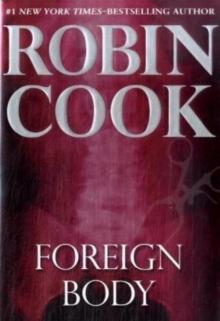 Foreign Body
Foreign Body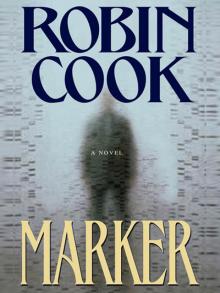 Marker
Marker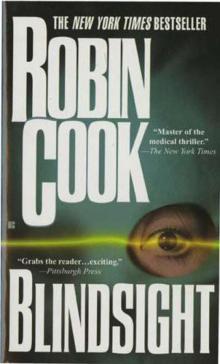 Blindsight
Blindsight Terminal
Terminal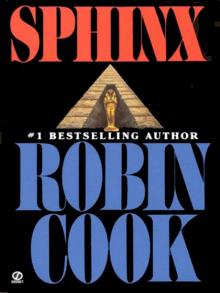 Sphinx
Sphinx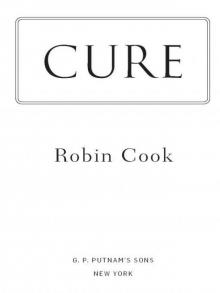 Fatal Cure
Fatal Cure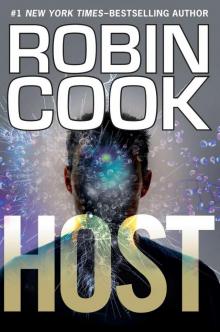 Host
Host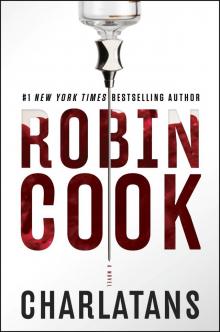 Charlatans
Charlatans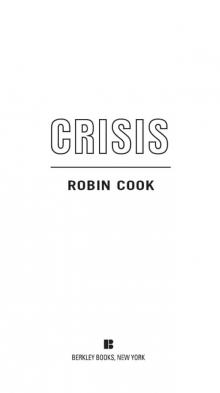 Crisis
Crisis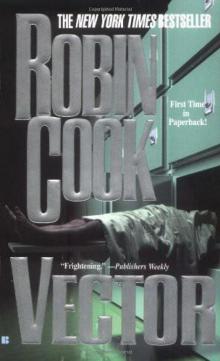 Vector
Vector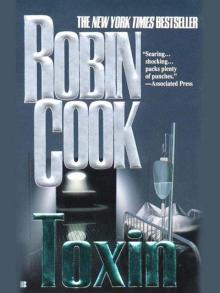 Toxin
Toxin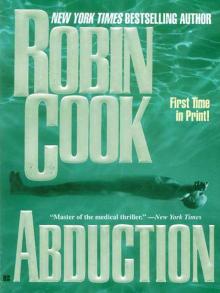 Abduction
Abduction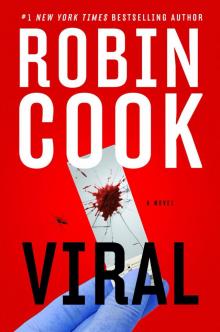 Viral
Viral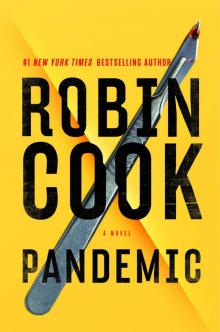 Pandemic
Pandemic Outbreak
Outbreak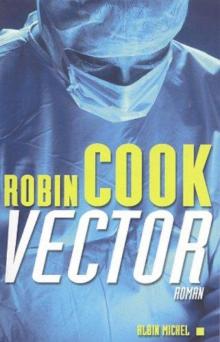 Vector js&lm-4
Vector js&lm-4 Godplayer
Godplayer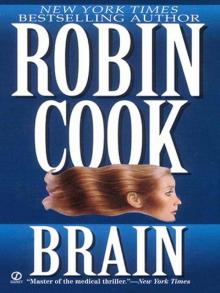 A Brain
A Brain Year of the Intern
Year of the Intern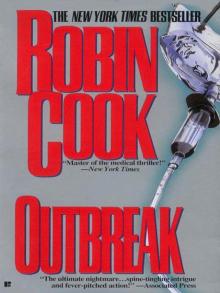 Outbreak dmb-1
Outbreak dmb-1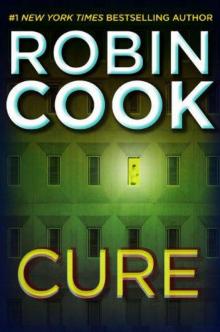 Cure
Cure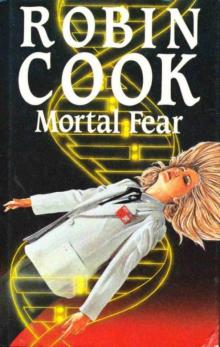 Mortal Fear
Mortal Fear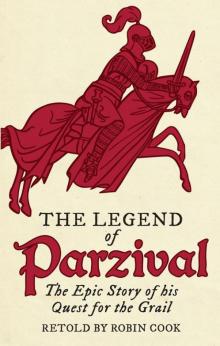 The Legend of Parzival
The Legend of Parzival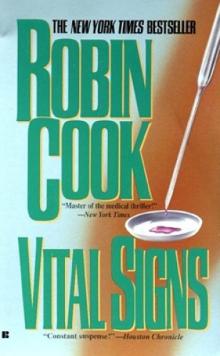 Vital Signs dmb-2
Vital Signs dmb-2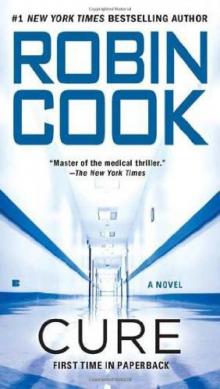 Cure (2010) sam-10
Cure (2010) sam-10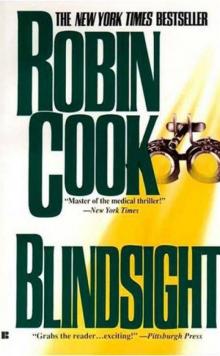 Blindsight sam-1
Blindsight sam-1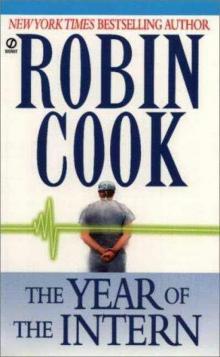 The Year of the Intern
The Year of the Intern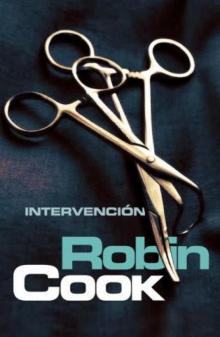 Intervention sam-9
Intervention sam-9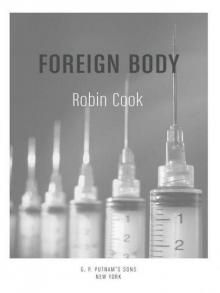 Foreign Body sam-8
Foreign Body sam-8